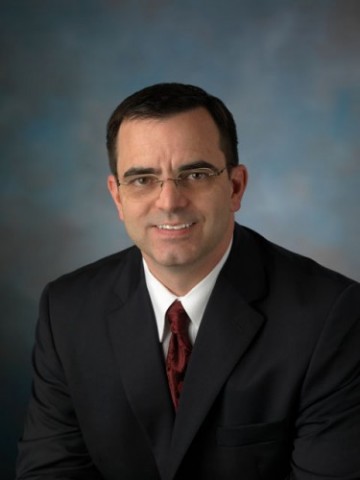J.D. Polk, D.O., M.S., M.M.M., CPE, FACOEP, has been named dean of the College of Osteopathic Medicine at Des Moines University after an extensive national search process. Dr. Polk will assume the role August 1.
"We are thrilled with the selection of Dr. Polk. We believe he will bring innovative and visionary leadership to the College and work collaboratively with all to realize a collective vision of excellence in medical education, research, clinical service and community engagement," said Des Moines University President Angela L. Walker Franklin, Ph.D.
Dr. Polk has an extensive and diverse background in medicine and administration. He brings valuable experience in accreditation and the evaluation of medical education. Dr. Polk has worked for the United States Department of Homeland Security (DHS) since 2011 and is currently the assisting secretary (acting) for health affairs and chief medical officer. Before working at DHS, he spent seven years in aerospace medicine at NASA.
Throughout his career, Dr. Polk has been active in local, state and federal emergency services and preparedness planning. He is a clinical associate professor of emergency medicine at the Edward Via College of Osteopathic Medicine and an affiliate associate professor and senior fellow in the School of Public Policy at George Mason University.
Dr. Polk earned his doctor of osteopathic medicine degree from A.T. Still University in Kirksville, Missouri. He holds a master's in space studies with a concentration in human factors from the American Military University and a master's in medical management from the University of Southern California's School of Business.
"For most of my career, I have served both my country and my patients. That 'service before self' mentality still applies, even at DMU," he said. "The most important people at DMU are our patients. They serve as the basis for our very existence, they are the center of our profession and they serve an important role in educating our students. We produce quality graduates, but the reason we produce them is to serve the health care needs of our Central Iowa patients."
